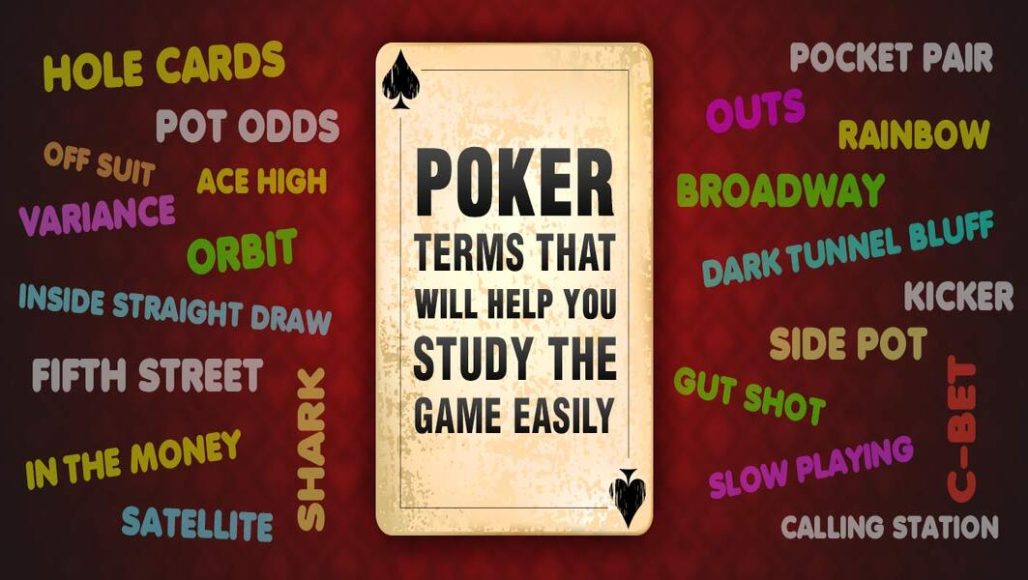Poker Terms for Beginners: A Comprehensive Guide

Poker is more than just a card game; it’s a cultural phenomenon with its own language, full of unique terms, slang, and phrases that can bewilder a beginner. Whether you’re sitting at a professional poker table in Las Vegas or playing a casual game with friends, understanding poker terms for beginners is essential to making the most of your poker experience. This guide will introduce you to some of the most common poker terms and phrases that will help you feel confident, understand the flow of the game, and maybe even give you a little edge at the table.
What is Poker Slang and Why Does It Matter?
Poker has been around for centuries, and in that time, it has developed a rich language filled with slang that reflects the culture of the game. Poker slang for good luck, as well as specific terminology for hands, actions, and strategies, are used widely in both professional and casual settings. While some poker slang can be regionally specific, many terms are universal, meaning you’ll hear them whether you’re playing online or at a local card room.
The key to mastering poker or video poker meaning slang is to familiarize yourself with the most common poker hand terms, betting phrases, and table dynamics. Doing so will not only help you play better but also allow you to engage with fellow players more effectively.
Essential Poker Terms for Beginners
- Blinds: In most poker variants, blinds refer to forced bets placed by two players before any cards are dealt. The “small blind” and the “big blind” are designed to create initial action in the pot. The amount of the blinds can vary depending on the stakes of the game, but they are a fundamental aspect of poker betting structures.
- Call, Raise, Fold: These three actions are the core of poker betting.
- Call means matching the current bet.
- Raise means increasing the bet.
- Fold means giving up your hand and any chance of winning the pot.
- Check: If no one has placed a bet in the current round, a player can “check,” meaning they are passing the action to the next player without betting any chips.
- The Flop, Turn, and River: These are the community cards dealt in games like Texas Hold’em and Omaha. The Flop refers to the first three community cards dealt face-up. The Turn is the fourth community card, and the River is the fifth and final community card.
- All-in: Going “all-in” means a player is betting all their remaining chips. It’s a high-risk, high-reward move and can dramatically shift the momentum of the game.
- Pocket Cards: The cards dealt to a player that only they can see. These are also called hole cards.
Poker Hand Terms: What You Need to Know
One of the first things any new player must learn is the ranking of poker hands. These are universal, regardless of whether you’re playing Texas Hold’em, Omaha, or another variation of poker.
Here’s a simple breakdown of poker hand rankings from highest to lowest:
- Royal Flush: A, K, Q, J, 10, all of the same suit. This is the most powerful hand in poker.
- Straight Flush: Five consecutive cards of the same suit (e.g., 7, 8, 9, 10, J).
- Four of a Kind: Four cards of the same rank (e.g., 4 aces).
- Full House: Three cards of one rank and two of another (e.g., three kings and two 7s).
- Flush: Five cards of the same suit, not in sequence.
- Straight: Five consecutive cards of mixed suits.
- Three of a Kind: Three cards of the same rank.
- Two Pair: Two pairs of cards of the same rank.
- One Pair: Two cards of the same rank.
- High Card: If no player has a winning hand, the highest card held by any player determines the winner.
Knowing these poker hand terms is critical for understanding how to evaluate your hand against your opponents’.
Poker Slang for Good Luck and Other Key Phrases
The world of poker is filled with colorful expressions. Some of these poker slang terms have deep roots in the history of the game, while others have emerged in more recent times. Let’s look at some common poker slang and phrases that you’ll likely hear at the table:
- Fish: A term for an inexperienced player who is likely to lose money.
- Shark: A skilled and aggressive player who often wins.
- Bad Beat: When a player with a strong hand loses to an unexpected or improbable draw.
- The Nuts: The best possible hand given the current community cards.
- Donk Bet: A bet made by a player who is out of position, typically seen as a weak or unexpected play.
- Drawing Dead: When a player’s hand is mathematically unable to win, no matter what cards come next.
Some players also use poker slang for good luck as a form of banter at the table, such as saying, “Run good” or “Catch a river,” referring to hoping for favorable outcomes in the game.
Betting and Strategy: Getting Familiar with Poker Phrases

Poker is as much a game of strategy as it is about the cards you hold. Understanding poker terms for beginners that revolve around betting can significantly impact your play.
- Pot Odds: The ratio of the current size of the pot to the cost of a contemplated call. For example, if the pot is $100 and it costs you $25 to call, the pot odds are 4 to 1.
- Value Bet: A bet made with the intention of getting called by a worse hand.
- Bluff: Betting or raising with a weak hand in hopes of making your opponents fold stronger hands.
- Continuation Bet (C-Bet): A bet made by the player who took the lead in the previous betting round. If you raised pre-flop, a C-bet on the flop is a way of maintaining pressure on your opponents.
- Check-Raise: When a player checks with the intention of raising after their opponent bets. This can be a powerful way to trap unsuspecting players.
Poker Terms Spreadsheet: A Quick Reference for Beginners
| Term | Meaning |
|---|---|
| Blinds | Forced bets placed by two players before cards are dealt |
| Call | Matching the current bet |
| Raise | Increasing the current bet |
| Fold | Giving up your hand and the chance to win the pot |
| Flop, Turn, River | Community cards dealt in Texas Hold’em and Omaha |
| All-in | Betting all of one’s chips in a single move |
| Royal Flush | Best possible poker hand, A, K, Q, J, 10 of the same suit |
| Bluff | Betting with a weak hand to make opponents fold stronger hands |
| Pot Odds | Ratio of the current pot size to the cost of a contemplated call |
| C-Bet | A bet made by the player who took the lead in the previous round |
Conclusion
Mastering poker terms and phrases is a vital step for anyone serious about improving their game. By familiarizing yourself with poker slang, hand terms, and key strategies, you’ll not only be better equipped to follow the action but also enhance your ability to make informed decisions. Whether you’re playing for fun or aiming to become a skilled player, these foundational poker terms for beginners will set you on the right path toward success at the table.
FAQ
Some of the essential poker terms for beginners include blinds, call, raise, fold, check, and understanding the flop, turn, and river. These basic terms will help you follow the game flow and understand the betting structures.
“All-in” refers to a player betting all of their remaining chips in a single move. This can happen in any betting round, and it creates a high-stakes situation where the player’s game hinges on the outcome of that hand.
Common poker slang for good luck includes phrases like “Run good” or “Catch a river.” Players often use these terms to wish each other good fortune, particularly when hoping for favorable cards on the turn or river.
Poker hand terms define the ranking of hands. From highest to lowest: Royal Flush, Straight Flush, Four of a Kind, Full House, Flush, Straight, Three of a Kind, Two Pair, One Pair, and High Card.
A bluff occurs when a player bets or raises with a weak hand, attempting to convince their opponents to fold stronger hands. Bluffing is an integral part of poker strategy and requires good timing and insight into the other players’ tendencies.
The “nuts” refers to the best possible hand at a given point in a poker hand, based on the community cards dealt. If a player holds the nuts, they have the highest-ranking hand and are unbeatable unless the board changes.
Pot odds are the ratio of the current pot size to the cost of a contemplated call. Understanding pot odds helps players determine whether it is mathematically correct to call based on their chances of completing a drawing hand.
A “bad beat” happens when a strong hand that is statistically favored to win loses to an unexpected or low-probability hand. This often occurs on the turn or river when the opposing player draws the card they need to win.